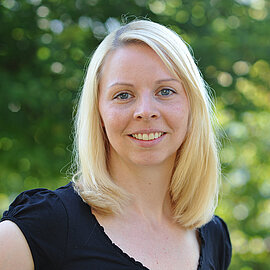In many transition economies, land governance systems are still undergoing a reform process. But a well-functioning legal system requires acceptance and enforcement on the ground (rule of law). Recent evidence from a farm survey in Kazakhstan and Uzbekistan suggests that formal rules and actual practices in land governance differ along a range of dimensions. In the current IAMO Policy Brief 38, IAMO Director Thomas Herzfeld and IAMO researcher Zarema Akhmadiyeva therefore reveal substantial mismatches between legal land rights and farmers’ perceptions in Kazakhstan and Uzbekistan.
Both, Kazakhstan and Uzbekistan, have numerous issues weakening the formal land legislation system. Low institutional capacity of local executive bodies to implement land reforms in Kazakhstan paves the way for misuse of law either by state authorities or farmers. Farmers’ personal connections with local authorities make it possible to violate legislative restrictions of land use without being sanctioned. Similarly, judicial institutions often support the misuse of power by local authorities or, in particular in Uzbekistan, additional agricultural policies often contradict farmers’ land rights prescribed by land law. Until recently, annual mandatory quotas for cotton and grain production impeded the realization of farmers’ rights to make decisions about land management, selection of input suppliers, and marketing channels. Farmers risk losing their land or being sanctioned in case of failure to fulfil government orders.
In order to investigate to what extent farmers’ legal land rights mismatch with farmers’ perceptions and real farming practices, both authors Akhmadiyeva and Herzfeld analysed several dimensions of land rights the so-called bundles of rights approach. Responses from almost 1000 farmers interviewed in Kazakhstan and Uzbekistan in 2019 were contrasted with the text of land regulation in both countries. Their research reveals that deviations of real farming practices from legal rights appear in two directions: 1) farmers engage in activities which they are not allowed to be, and 2) farmers do not use all the opportunities provided by the national land legislation. The most interesting findings of the study are that violations of legal restrictions relating to land transfers are common among Kazakh farmers; and that a big share of Uzbek farmers is deprived of an opportunity to freely realize their rights for agricultural yield and income generating.
Text: 2,717 characters (incl. spaces)
Further information
IAMO Policy Brief 38 “How to align formal land rights with farmers’ perceptions in Central Asia?” was published in English and Russian. The issues can be downloaded free of charge on the following website: www.iamo.de/en/publications/iamo-policy-briefs.
IAMO Policy Briefs
IAMO conducts research on important agricultural policies. In our IAMO Policy Briefs we share our take on the researched issues. In this series of publications, we elaborate briefly and in comprehensive language on various topics, which are relevant for today's society. We hope to involve the interested public in these topics as well as decision makers in politics, the economy and the media. Since 2011, we publish IAMO Policy Briefs at irregular intervals.
![Justice in Uzbekistan © sezerozger | Adobe Stock [Translate to Englisch:]](/fileadmin/_processed_/5/d/csm_Justiz_in_Usbekistan_Foto_sezerozger_fdfc9bb4e8.jpg)

